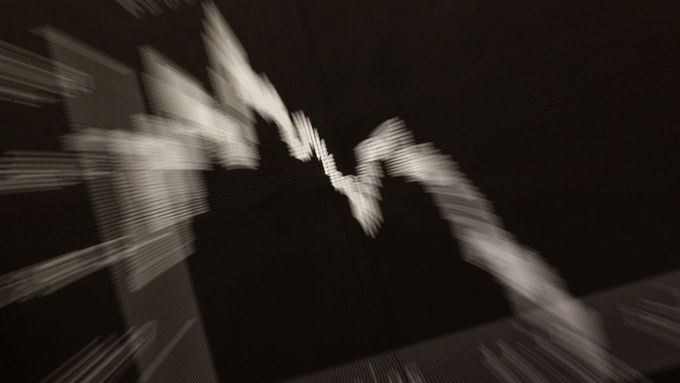Prague - What direction will take the Czech economy in the following months, amid the looming Euro-zone debt panic and extreme nervousness in the global markets?
The latest data indicate a slowdown - the Czech economy did not grow from the second to the third quarter - but everything will depend on Germany, the largest partner of the Czech export-based economy.
Read more: Czech firms losing their position in German market
In the third quarter of 2011, Germany's economy grew 2.5 percent compared to a year earlier. The British, French and Swedish economies grew by similar rates.
However, ten EU member states, including the Czech Republic, are in a high risk-category of stagnation or recession.
Read more: Czech 2012 GDP growth estimate revised from 2.5 to 1%
Read more: Czech "second dip" internal, unrelated to euro crisis
Does this mean that the 2008/9 recession will have a second dip in the EU at the end of 2011 and beginning of 2012?
Back in 2008
The output of EU economies in the third quarter of 2011 was much better than it was in the same period in 2008, when the Global Recession started.
In the third quarter of 2008, 18 out of 27 EU member states were in economic contraction. In the final quarter of the same year, the number increased to 24.
In addition, the first to slow down in 2008 were the traditional economic "motors" of the EU - Germany, France, Great Britain and Sweden. These large economies encountered themselves in difficulties already in spring 2008. It was only after the summer when the EU "periphery" - Spain, Greece, Rumania, Slovenia, Slovakia, and the Czech republic - started to feel the global economic downturn.
"...for it's not the same river"
This year, only four EU member states were in recession in the third quarter: Greece, Portugal, Cyprus and, surprisingly, Netherlands.
Another five countries were stagnating: Bulgaria, Belgium, Slovenia, Spain and the Czech Republic.
These countries, together with the troubled economy of Italy, now constitute a group of ten EU member states with the highest risk of slipping into recession in the following months. However, even if all these ten economies contract in the ongoing fourth quarter, it will not be enough to drag all the bloc into recession.
This is because this time, it is the EU "periphery" that is the first victim of the economic deceleration, while the economic "core" (and some smaller economies in Eastern Europe) is still doing quite well.
Read more: Czech economy has good reasons to fear Greek default
However, most analysts agree the German economy will decelerate. The OECD even estimates that its economy will contract by 0.3 percent in the last quarter of 2011, compared to the previous quarter.
The Germans themselves share this pessimistic view. The previous months saw a drop in industrial orders. The 3Q growth was driven by domestic consumption and investments by local companies, but this cannot offset a stronger decrease of industrial output.
Business climate index measured by IFO, a Munich institute, compares the investment mood in October 2011 to July 2008. Back then, German entrepreneurs expected an economic slowdown, and so do they now.
But analysts do not expect a very sharp slowdown. According to Gertrud Traud from Helaba, a Frankfurt financial institution, it is natural that after accelerating 3.6 percent in 2010 and estimated 3 percent in 2011, the economy will slow down to its normal pace.






